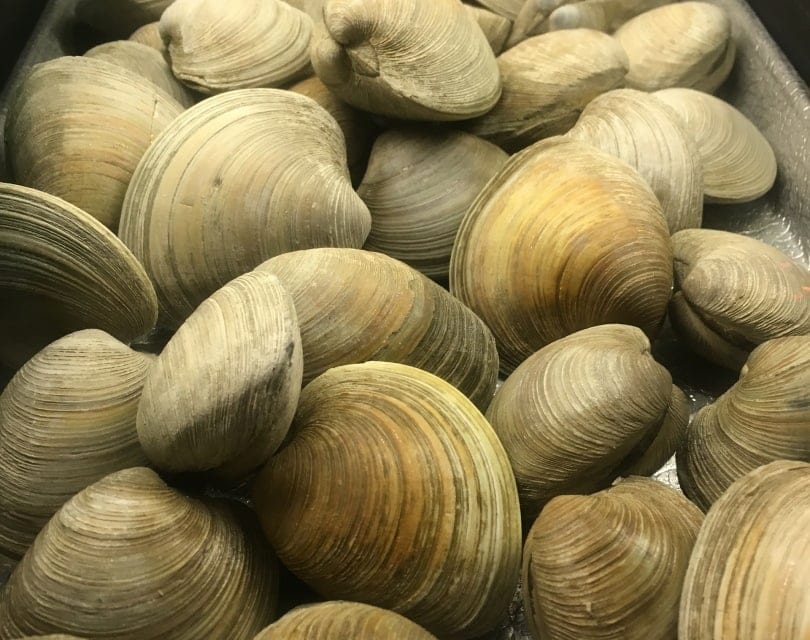Clams for Dogs

In recent years, pet owners have become increasingly mindful of their furry companions’ dietary needs. As a result, there has been a surge in interest in alternative and natural sources of nutrition for dogs. Among these, clams have emerged as a surprising yet highly beneficial addition to canine diets. Packed with essential nutrients and offering numerous health benefits, clams present an exciting opportunity to enhance the well-being of our canine friends.
The Nutritional Powerhouse of Clams:
Clams are a type of shellfish that thrive in both freshwater and saltwater environments. They are renowned for their rich nutritional profile, making them a valuable addition to any diet, including that of dogs. One of the standout features of clams is their high protein content. Protein is crucial for dogs as it serves as the building blocks for muscle, tissues, and organs, supporting overall health and vitality.
Moreover, clams are an excellent source of essential amino acids, including taurine and lysine, which are vital for various physiological functions in dogs. Taurine, in particular, plays a significant role in heart health and vision, making it indispensable for maintaining optimal canine wellness.
In addition to protein, clams boast an array of essential vitamins and minerals. They are particularly rich in vitamin B12, which is essential for nerve function and the production of red blood cells. Clams also contain significant amounts of iron, zinc, selenium, and vitamin C, all of which contribute to a robust immune system and overall health in dogs.
Furthermore, clams are a notable source of omega-3 fatty acids, including EPA (eicosapentaenoic acid) and DHA (docosahexaenoic acid). These fatty acids are renowned for their anti-inflammatory properties and their role in promoting healthy skin, coat, and joint function in dogs. Incorporating omega-3 fatty acids into a dog’s diet can help alleviate conditions such as arthritis and allergies, enhancing mobility and comfort.
Health Benefits of Clams for Dogs:
The consumption of clams can confer a multitude of health benefits upon dogs. One of the most notable advantages is their positive impact on joint health. The omega-3 fatty acids found in clams possess potent anti-inflammatory properties, which can help alleviate symptoms of arthritis and joint pain in dogs, promoting greater mobility and comfort, especially in older or arthritic canines.
Moreover, the abundance of vitamins and minerals in clams contributes to overall immune system support, helping dogs fend off illness and disease more effectively. The presence of antioxidants such as selenium and vitamin C helps combat oxidative stress and reduce the risk of chronic conditions, keeping dogs healthier and more resilient.
Additionally, the protein-rich nature of clams makes them an excellent dietary option for dogs looking to build or maintain muscle mass. This is particularly beneficial for active or working dogs, as well as those recovering from injury or illness, who require ample protein to support their rehabilitation and energy needs.
Furthermore, the omega-3 fatty acids present in clams offer substantial benefits for canine skin and coat health. By reducing inflammation and promoting moisture retention in the skin, these fatty acids help alleviate itching, flakiness, and other dermatological issues, resulting in a lustrous coat and improved overall skin condition.
Incorporating Clams into a Dog’s Diet:
When introducing clams into a dog’s diet, it is essential to do so gradually, particularly if the dog has not previously consumed shellfish. Start with small portions to assess the dog’s tolerance and monitor for any adverse reactions, such as gastrointestinal upset or allergic responses.
Clams can be served to dogs in various ways, including steamed, boiled, or raw, depending on personal preference and dietary considerations. It is crucial to avoid adding any seasoning or sauces that may be harmful to dogs, such as garlic or onions. Additionally, be mindful of the shells, ensuring they are removed entirely to prevent choking or intestinal obstruction.
As with any new food introduced to a dog’s diet, moderation is key. While clams offer numerous health benefits, they should be part of a balanced diet that includes a variety of protein sources, fruits, vegetables, and grains to ensure all nutritional needs are met.
Conclusion:
Clams are a nutrient-rich superfood that can provide significant health benefits for dogs. From their high protein content to their abundance of essential vitamins, minerals, and omega-3 fatty acids, clams offer a comprehensive nutritional package that supports overall well-being in canines. By incorporating clams into a dog’s diet in a safe and controlled manner, pet owners can help optimize their furry companion’s health, vitality, and longevity.






